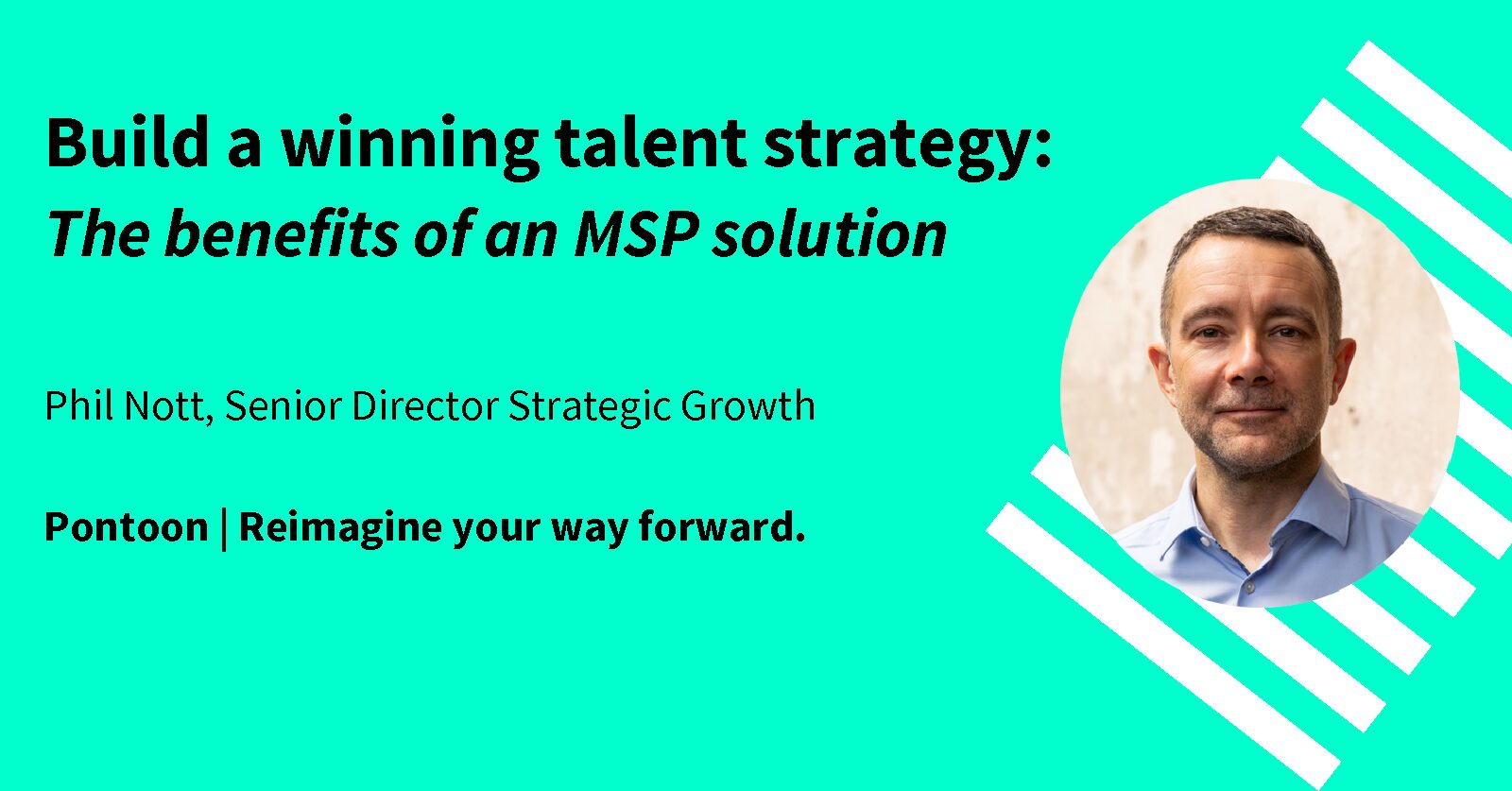Talent management is a team effort: Reimagining the role of the hiring manager
The role of hiring managers has drastically shifted amidst the evolving landscape of talent acquisition and retention in recent years. As organisations struggle to attract new talent in a demanding candidate market, much of the burden has fallen on hiring managers to assess, interview, and hire quickly. In a rush to hire, it’s easy for managers to make poor decisions to the detriment of the candidate and the organisational bottom line.
Companies can greatly benefit from partnering with the right talent acquisition partners, who can quickly fill requisitions, close skill gaps, and hire culturally aligned talent in the right location at the right price.

Phil Nott—Senior Director, Head of Financial Services EMEA
Too much control without consultation
Managers with full authority to hire new talent is an outdated strategy. Many people tasked with hiring have blind spots and personal biases that affect their capability to bring in talent objectively. Also, hiring new workers is often an additional task, a necessary distraction while overseeing day-to-day operations and supporting teams. Do hiring managers have the tools and capacity to be recruiting experts?
Taking some decision-making away from hiring managers could be a good thing. They should not be deciding the terms of who and how they hire. Managers only know the skill gap and positions they must fill for a defined period. Filling roles by job title only widens the skills gap, as companies fill requisitions based on obsolete skill sets and job requirements! This needs to be replaced with a focus on hiring on outcomes and what makes the most sense for the future of the role, team, and your organisation.
Without qualified consultation, readily available data and clear direction, managers face a variety of challenges, including:
- Over-relying on stale job descriptions
- Interviewing based only on technical skills and personal biases
- Increased time to hire – interviewing too many candidates, not shortlisting and afraid of saying “yes” to a candidate
- Increased time to hire with significant drop-out rate (given the demand for talent)
- Overvaluing first impressions – hiring based on gut and not the best overall candidate
Are you backfilling or right-filling?
Past performance may not be indicative of future results when it comes to hiring qualified talent.
For example, say your hiring manager has an employee vacate their position. Now, there’s a skill gap to fill. The requisition is drafted, and your manager is responsible for filling the role. There is limited time to conduct the necessary re-evaluation of the role and skills required to fill it. How has the position changed over time? Have all skills, locations, candidate availability, and compensation been qualified? Have all sources and recruitment channels been exhausted to find the best possible skills available?
Failure to define the ideal skillset contributes to recruiting challenges and employee turnover. Conversations with subject matter experts need to happen before making any hiring decisions. These individuals can help evaluate the skills you need, hiring timelines, candidate availability and appropriate pay grades. Hiring managers don’t have access to critical analytic tools required to see the big picture and gain insights based on market data.
Hiring decisions must be based on insight which results in right-filling instead of back-filling. The talent partner’s job is to advise and consult with the hiring manager. By doing so, we can better understand business needs and provide informed, actionable, data-driven guidance to make smart hiring decisions.
Planning today to take on tomorrow
Finding the right talent takes planning, with skill shortages worse than ever in this candidate market.
Much more thought needs to go into the hiring of your workforce. Organisations must consider the candidate and hiring manager’s experience. This process goes beyond looking to fill a role with the resource that meets the job description criteria. As the market and functions constantly evolve, so should your strategic approach.
This is not to suggest that all authority be taken away from managers. There are still valuable acumens into skill capabilities and cultural fit that should stay with hiring managers. That said, everything else should be up for consultation and advisory support.
With analytics, advisory, demand planning, and process analysis, Pontoon recommends and builds customised hiring solutions based on market demand. We help identify the most appropriate talent channels, shortlist qualified candidates and find the right skill mix and best marketing routes that deliver on your desired business outcomes. For example, say you’re about to backfill a requisition for a full-time Data Analyst. However, our market insights indicate an inability to source FTEs for that skillset in the desired location. Thus, the immediacy of hire could result in a contingent hire (need was short, the location was the same, etc.). This level of advisory support is a game-changer.
We need to redefine the role of the hiring manager to take the burden of misguided hiring off their plate and into the hands of experts like Pontoon.
Related Post
Understanding managed service provider benefits is crucial for organisations aiming to stay agile and meet business objectives. This is especially true as they engage more temporary and contract workers to ...




